Navigating the ESG Landscape: A Framework and Standard Guide for Businesses

Introduction to ESG Compliance and its Importance
In today's rapidly evolving business landscape, Environmental, Social, and Governance (ESG) compliance has become a crucial factor for companies worldwide, and Indian manufacturers are no exception. ESG compliance refers to the practice of aligning a company's operations and strategies with sustainable and socially responsible principles. It encompasses a wide range of issues, from reducing environmental impact and promoting fair labor practices to ensuring transparency and ethical governance.
As the world's fifth-largest economy and a global manufacturing hub, India plays a significant role in shaping the future of sustainable business practices. By adhering to ESG frameworks and standards, Indian manufacturers not only meet the growing expectations of stakeholders but also gain a competitive edge in the global market.
The importance of ESG compliance for Indian manufacturers is clear, but translating good intentions into financial success requires a strategic roadmap.
These frameworks provide a structured approach, ensuring that ESG efforts not only benefit the environment and society but also deliver tangible financial advantages. Investors, consumers, and regulatory bodies are increasingly prioritizing companies that demonstrate a strong commitment to ESG principles. They recognize that ESG compliance not only contributes to a more sustainable future but also serves as a key indicator of a company's long-term viability and resilience. In this way, adhering to ESG standards is not just about doing good—it's a critical component of sustaining financial success and business longevity.
Government Linkage with ESG Compliances (SEBI)
Building on its commitment to transparency, the Securities and Exchange Board of India (SEBI) has taken a revolutionary step by mandating Business Responsibility and Sustainability Reporting (BRSR) for the top 1,000 listed companies in India since FY 2022-23. This initiative compels these leading corporations to disclose their environmental, social, and governance (ESG) performance. By shedding light on a company's impact beyond financial metrics, BRSR reports empower investors and stakeholders to make informed decisions. This transparency fosters a culture of accountability within the corporate landscape, ensuring that companies are responsible for their social and environmental impact alongside their financial performance.
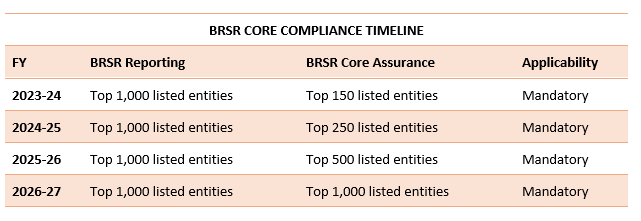
With SEBI's regulations encouraging transparency and accountability, companies now need practical tools to implement ESG practices effectively. This is where ESG frameworks and standards come into play. These frameworks provide companies with a structured approach to measure, disclose, and manage their environmental, social, and governance performance.
Key ESG Frameworks and Standards
To navigate the path towards sustainable success, we'll explore key ESG frameworks and standards relevant to the Indian manufacturing landscape.
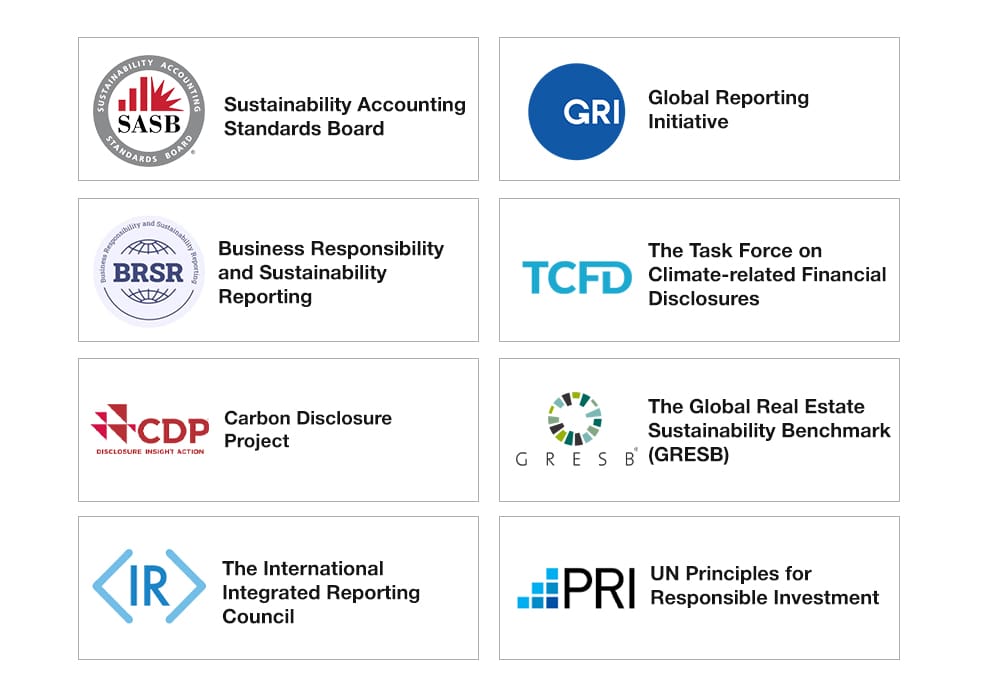
The Positive Impact of ESG Compliance on Indian Manufacturers
The impact of ESG compliance on Indian manufacturers is multifaceted and far-reaching. It goes beyond mere regulatory obligations and touches upon various aspects of their business operations, reputation, and long-term sustainability. Let us explore how ESG compliance shapes the landscape for manufacturers in India.
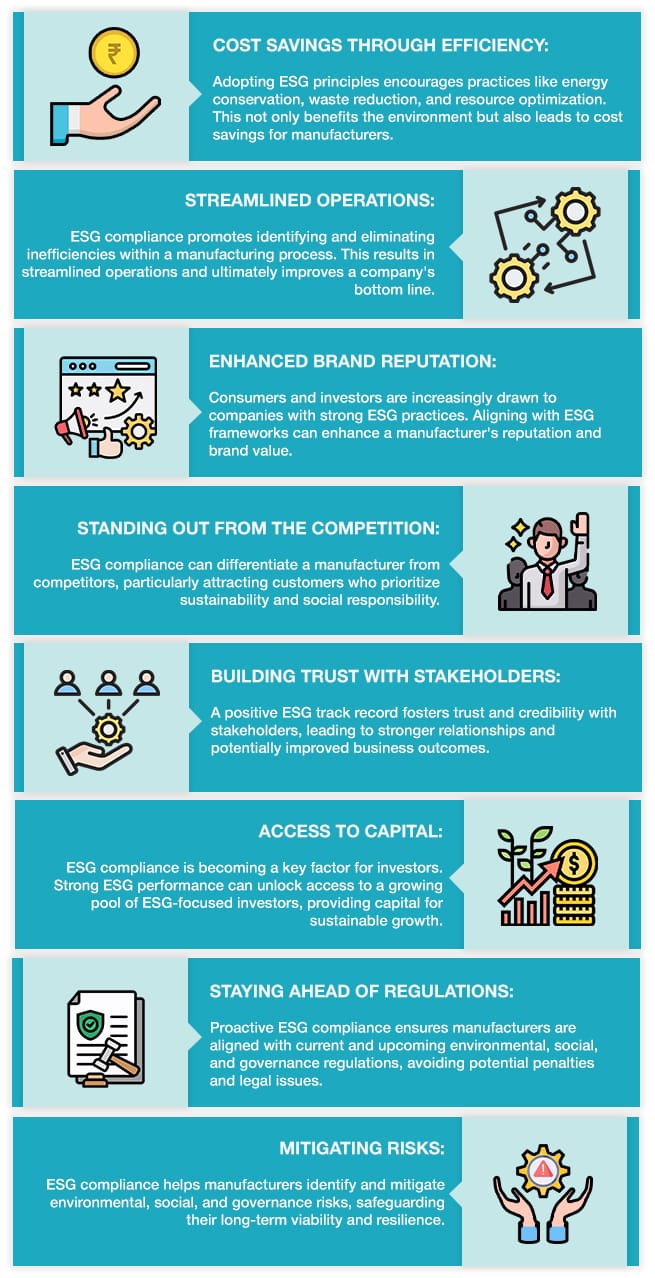
In essence, ESG compliance is not just a box to be ticked but a transformative force that reshapes the way Indian manufacturers operate, compete, and create value. By embracing ESG principles, manufacturers can unlock a host of benefits, from improved efficiency and cost savings to enhanced reputation and access to capital. As the business landscape continues to evolve, ESG compliance will increasingly become a strategic imperative for Indian manufacturers seeking to thrive in a sustainable and responsible future.
Practical Steps for Indian Manufacturers to Meet ESG Compliance
As Indian manufacturers embark on their ESG compliance journey, it is essential to have a clear roadmap and actionable steps to guide their efforts. By taking proactive measures and adopting best practices, manufacturers can effectively navigate the complexities of ESG compliance and position themselves for long-term success. Let us explore some practical steps that Indian manufacturers can take to meet ESG compliance requirements.
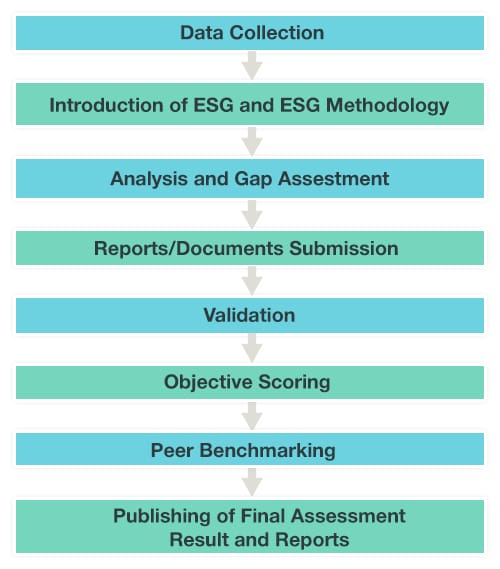
To translate ESG principles into actionable strategies, we'll now explore Key Performance Indicators (KPIs) for ESG, relevant to the Indian manufacturing context.
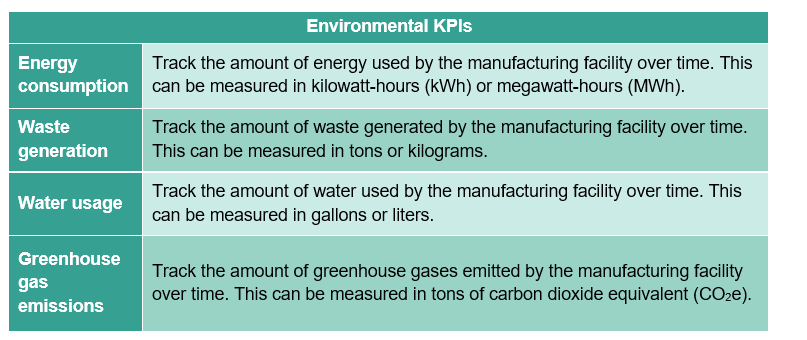
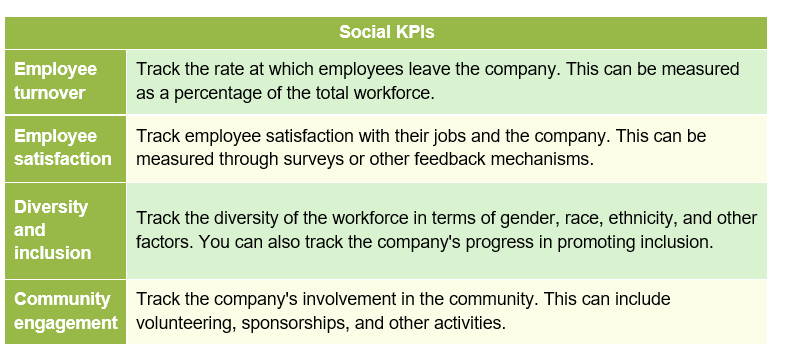
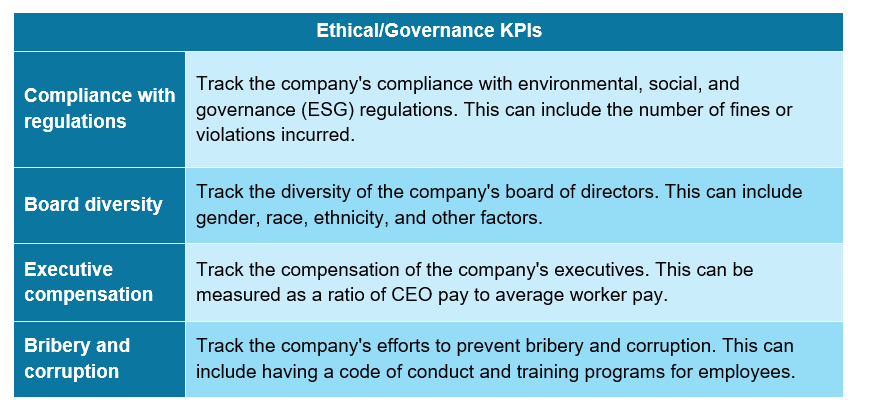
Ready to embark on your journey towards mastering ESG compliance?
GreenTree Global can be your trusted partner. With a proven track record of delivering over 900 successful projects, we offer a comprehensive approach to navigating the complexities of ESG frameworks and standards.
Contact us today to discuss your specific needs and explore how our expertise can help you achieve long-term success in a sustainable future.
Contact Us:
+91 8799732560, +91 9811122522
[email protected], [email protected]


